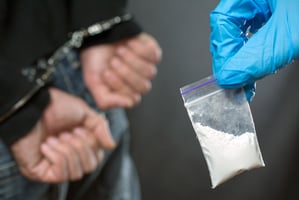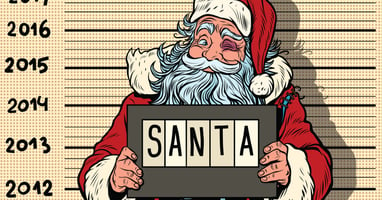Drug Charges and Penalties in NSW
This Post is updated to reflect the most recent drug charges and penalties in NSW.
Drugs, Charges, and Penalties
Recent events have plunged recreational drug use into the news again. Some events now have a heightened police presence with the aim of reducing fatalities due to drug use. If a person is caught with drugs the penalties can vary depending on what they have and how much of it they’re carrying. Recent efforts to have drug testing at these events coupled with overdoses and a ramped up police presence has brought this topic to the forefront of our reader's minds. There is a lot of misinformation out there and knowing the law is more important now than ever.
By far one of the most common Charges
In Australia today are those pertaining to drugs. But, not all drug charges are the same, in fact, drug charges are determined by several different factors. Like what drug, where it was found, how much of it was there, what was the reason for the possession, and what is the perceived intent? Drug users face a different set of charges than drug dealers and even within these categories charges can vary.
NSW Drug Misuse and Trafficking Act 1985
When referring to drugs police are largely following the NSW Drug Misuse and Trafficking Act 1985, which defines prohibited drugs and prohibited plants such as cannabis, amphetamines, ecstasy, cocaine, and opiates. If the police have a reasonable suspicion that somebody is in possession of drugs, they can stop them and search them without placing them under arrest.
So what are the main categories of drug-related charges in NSW?
The charges that typically apply to drugs are usage, possession or trafficking, here is a break down of these categories.
Drug Use:
Whatever way you choose to use, you are violating the law. From Smoking Marijuana to injecting heroin and everything in-between. If you have used an illegal substance and have been arrested for it, you will face Drug Use Charges. What this means is that the police will have to prove that you used illegal drugs. Surprisingly, most of these arrests are made because the person has admitted that they have used illegal drugs to the police.
While a person may show signs of having used drugs, police must prove that they have taken drugs. Even if the person is carrying drugs, police must either get the person to admit that they took them or get a blood test to charge a person with usage.
If you or someone you know is facing Drug Charges in Australia, please click here.
Drug Possession:
Drug possession falls under section 10 of the Drug Misuse and Possession Act. Meaning that just being in possession of an illegal drug or substance in NSW means that you are considered guilty of violating this act.
Even if a person hasn’t taken a drug, if they are in possession of it, they can be charged. Section 10 of the Drug Misuse and Trafficking Act pertains to the POSSESSION of prohibited drugs. Possession doesn’t even mean that the drugs are on a person. If a person is in control or custody, for example, if the drugs are in the person’s car, they could still be charged with possession. Even momentary possession is a chargeable offence. Again, the burden of proof falls to police and prosecution. It is important to know that there are many forms of possession and though you may not feel that you are violating any laws you very well could be.
In NSW possession charges carry a maximum penalty of 20 penalty units (each penalty unit is a$110 fine) and/or 2 years of imprisonment. It is at the discretion of the court as to whether they impose other penalties in conjunction with or instead of imprisonment. Other possible penalties can include, home detention, an intensive correction order, a suspended sentence, community service, fines, or they can even issue a good behaviour bond.
It is rare for possession to be the sole charge a person will face. Usage charges, and depending on the amount in the person’s possession, trafficking charges are usually included, increasing potential penalties.
CM Lawyers can help you protect your record from a criminal conviction, contact us today.
Drug Supply and Trafficking:
If a person is in possession of large enough quantities of a prohibited substance, charges can be increased to trafficking meaning that you are considered to be someone who is supplying drugs to others. In New South Wales, the offense of supplying a prohibited drug carries a maximum penalty of 5.500 penalty units and/or life imprisonment.
This charge is an interesting one, in that, penalties can vary based on the amount and drug type. The type of drug and the amount will have a large impact on the type of penalty the courts will consider.
Quantities are based on weight alone and the purity or concentration of the substance is not taken into account. The severity of penalties linked to trafficking charges increases incrementally as the amount increases. The increments are defined in Schedule 1 of the Drug Misuse and Trafficking Act as small, trafficable, indictable, commercial and large commercial quantity, and penalties vary depending on the substance. The table below lists examples of chargeable quantities of prohibited substances.
The amount and type segmentation are found in the table below.
| Small quantity | Traffickable quantity | Indictable quantity | Commercial quantity | Large Commerce quantity | |
|---|---|---|---|---|---|
| Cannabis lead | 30.0g | 300.0g | 1,000.0g | 25.0kg | 100.0kg |
| Ecstasy | 0.8g | 3.0g | 5.0g | 250.0g | 1.0kg |
| Cocaine / Heroin / Amphetamine | 1.0g | 3.0g | 5.0g | 250.0g | 1.0kg |
Schedule 1 of the Drug Misuse and Trafficking Act sets out the amount considered to be a small, trafficable, indictable, commercial and large commercial quantity.
Small Quantity
The maximum penalty is a fine of 50 penalty units and/or imprisonment for 2 years.
traffickable Quantity
The maximum penalty in the Local Court is a fine of 100 penalty units and/or 2 years imprisonment.
Indictable Quantity
The maximum penalty in the Local Court is a fine of 100 penalty units and/or 2 years imprisonment. The maximum penalty in the District Court is 200 penalty units and/or 15 years imprisonment.
Commercial Quantity
The maximum penalty is a fine of 3,500 penalty units and/or imprisonment for 20 years.
Large Commercial Quantity
The maximum penalty is a fine of 5,500 penalty units and/or life imprisonment.
As you can see there is a lot to know about Drug Charges in NSW
There is a sharp contrast between the use of illegal and mind-altering substances for recreational and fun purposes and ending up in a prison cell. Even a single night out experimenting with drugs could lead to jail time.
Sometimes a person can start off just looking for a good time and quickly end up in the worst times of their lives.
Prohibited substance charges should be treated extremely seriously. If you or someone you know are facing drug charges it is imperative to obtain legal representation to get the best outcome. CM Lawyers can help navigate potential criminal charges and in some cases protect your record from these charges. Please Contact us to get our help right away.



